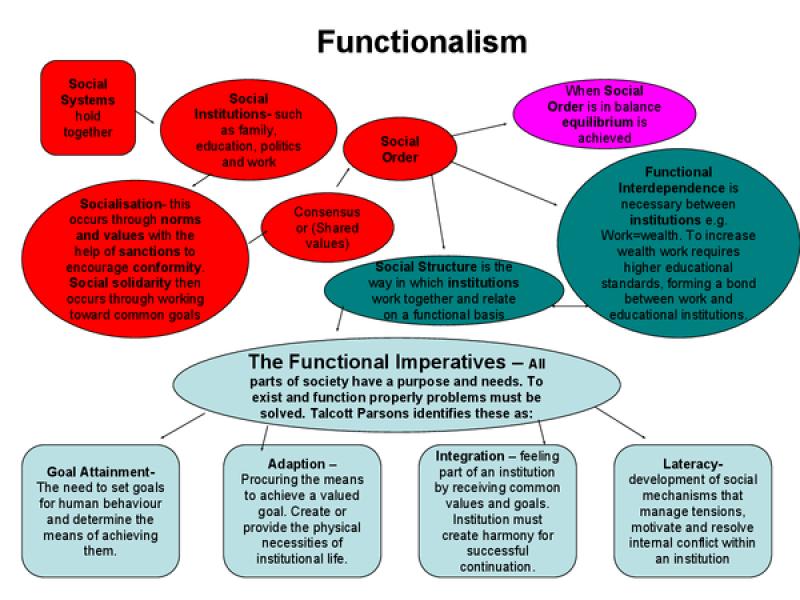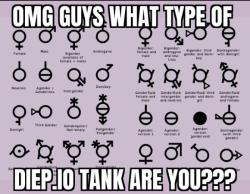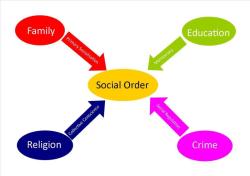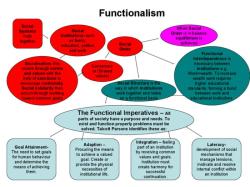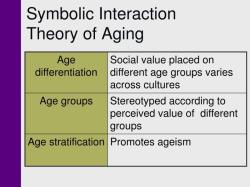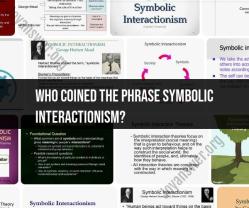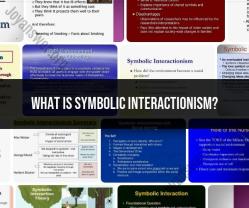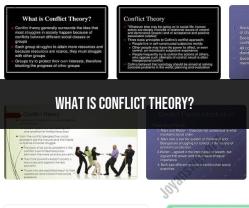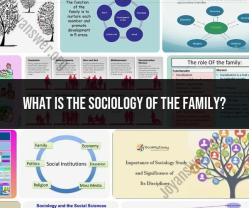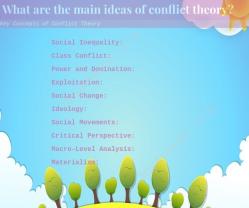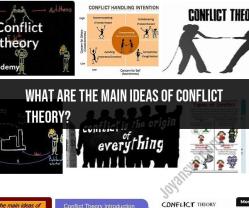How does one relate to the functionalism theory in society?
Functionalism is a sociological perspective that views society as a complex system with interrelated parts, each contributing to the overall stability and functioning of the whole. Relating to functionalism theory in society involves understanding and applying its key concepts. Here are some practical insights on how one can relate to functionalism theory:
Understanding Social Institutions:
- Functionalism emphasizes the importance of social institutions (e.g., family, education, government) in maintaining social order. To relate to functionalism, analyze how these institutions contribute to the stability of society.
Recognizing Interconnectedness:
- Functionalism sees society as an interrelated system where each part serves a purpose. Consider how different aspects of society are interconnected and how changes in one part may affect the overall system.
Functional Analysis of Roles:
- Functionalism examines how individual roles contribute to the functioning of society. Reflect on the roles you and others play in different social contexts and how these roles contribute to social order.
Examining Social Stability:
- Functionalism suggests that social stability is essential for the well-being of society. Consider the factors that contribute to stability, such as shared values, norms, and social cohesion.
Identifying Manifest and Latent Functions:
- Manifest functions are intended and recognized outcomes of social institutions, while latent functions are unintended or hidden consequences. Analyze the manifest and latent functions of different social structures and practices.
Role of Social Change:
- Functionalism acknowledges the role of social change but often views it as a gradual and evolutionary process. Consider how societal changes are integrated into existing structures to maintain stability.
Promoting Social Order:
- Functionalism emphasizes the role of social order in preventing chaos. Reflect on how social norms, rules, and institutions contribute to maintaining order in your community or society.
Addressing Dysfunctions:
- Functionalism recognizes that not all aspects of society contribute positively. Identify dysfunctions or negative consequences within social structures and consider how they might be addressed or mitigated.
Applying in Education:
- In education, functionalism can be applied by understanding the role of schools in socializing individuals and preparing them for societal roles. Consider how educational institutions contribute to social stability.
Criticisms and Alternative Perspectives:
- While relating to functionalism, also be aware of criticisms and alternative sociological perspectives. Recognize that functionalism has limitations and may not capture the complexity of certain social phenomena.
Community and Social Integration:
- Functionalism emphasizes the importance of community and social integration. Consider how community engagement and social connections contribute to the overall well-being of individuals and society.
Reflecting on Social Inequality:
- While functionalism may not focus heavily on social inequality, it's important to reflect on how structural inequalities can impact the functioning of society and contribute to tensions.
Relating to functionalism involves critically examining the structures and functions of society, recognizing the contributions of various institutions, and understanding how social order is maintained. It's a lens through which one can analyze the dynamics of social systems and their impact on individuals and communities.
Unveiling the Social Organism: A Tour Through Functionalist Theory
Functionalism, a major sociological perspective, views society as a complex system where different parts (institutions, social structures, norms) work together to ensure its survival and stability. Imagine society as a living organism, each part playing a vital role in its functioning.
1. Structure and Dynamics of Society:
- Interdependence: Different parts of society (family, economy, education) depend on each other for smooth functioning. Disruptions in one part can affect others.
- Social Functions: Institutions fulfill specific functions necessary for society's well-being (education transmits knowledge, family socializes children).
- Equilibrium: Society strives for stability and order, with social mechanisms (norms, values) promoting conformity and cohesion.
- Evolution: Like organisms, societies adapt and change over time to maintain equilibrium. New functions and structures emerge as needed.
2. Key Concepts and Principles:
- Social Structure: The organized web of institutions, roles, and relationships that shapes society.
- Social Functions: The contributions of different parts of society to its overall well-being.
- Equilibrium: The tendency of societies to maintain stability and order through adaptation and adjustment.
- Consensus: The shared values and beliefs that bind society together and promote cooperation.
- Manifest and Latent Functions: Manifest functions are intended consequences (education teaches skills), while latent functions are unintended but beneficial consequences (education fosters social mobility).
3. Historical Contributors:
- Emile Durkheim: Emphasized social functions and the importance of shared values for social order.
- Talcott Parsons: Compared society to a biological organism with interrelated parts.
- Robert Merton: Distinguished between manifest and latent functions and introduced the concept of social deviance as functional for reinforcing norms.
4. Comparison and Contrast:
- Conflict Theory: Sees society as a struggle for power between different groups, contrasting with functionalism's emphasis on harmony.
- Symbolic Interactionism: Focuses on individual interpretations and meaning-making, unlike functionalism's focus on large-scale structures.
- Feminist Theory: Critiques functionalism for overlooking gender inequalities and women's roles in society.
5. Relating to and Critiquing Functionalism:
- Individuals: We experience functionalism through the roles we play (student, worker, family member) and the institutions we interact with.
- Critiques: Overemphasis on consensus neglects conflict and power dynamics; ignores societal inequalities and injustices; can be overly deterministic and conservative.
Functionalism, with its focus on social order and stability, offers valuable insights into how societies function. However, it's important to critically engage with its limitations and consider it alongside other theoretical perspectives for a more comprehensive understanding of the complex tapestry of human societies.
Remember, like any tool, functionalism's value lies in its application and how we use it to navigate and analyze the intricate workings of the social world around us.
